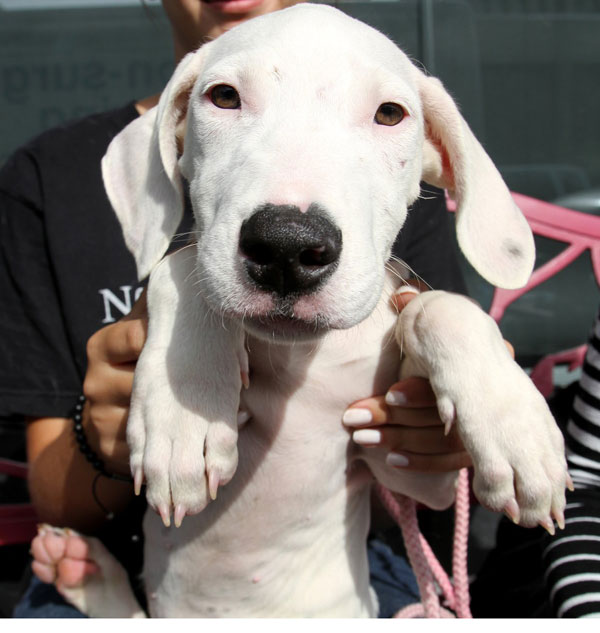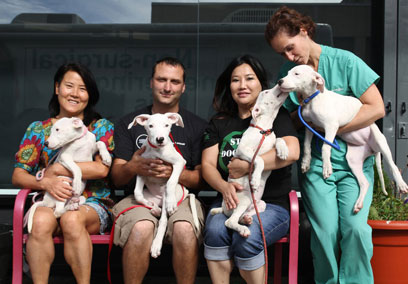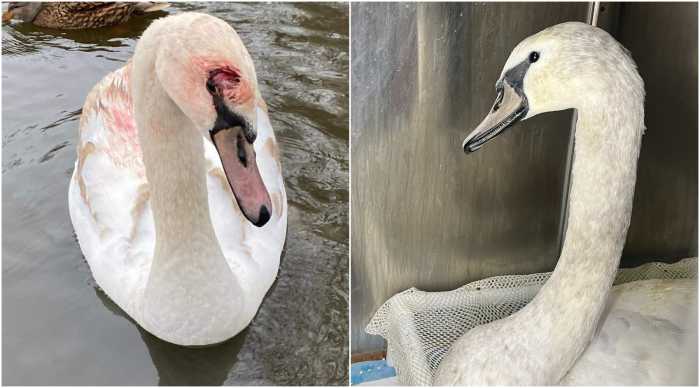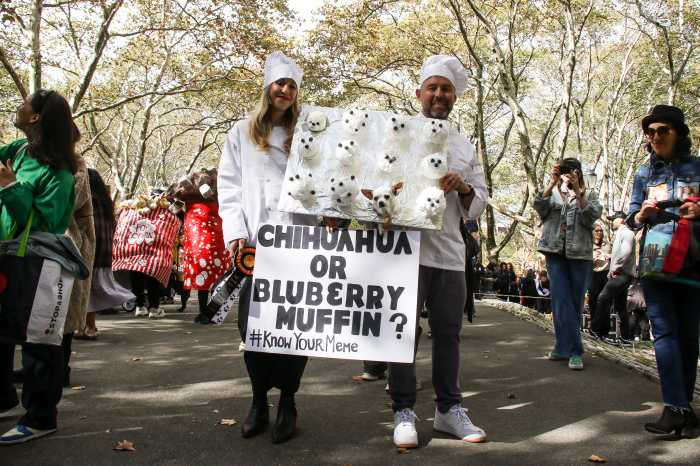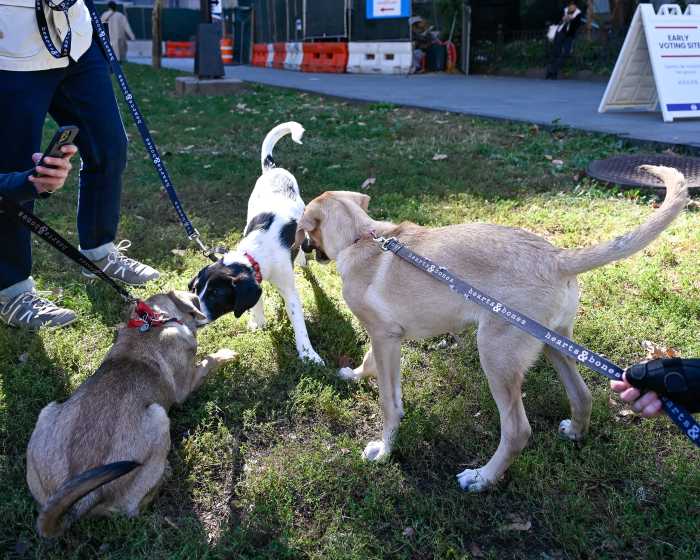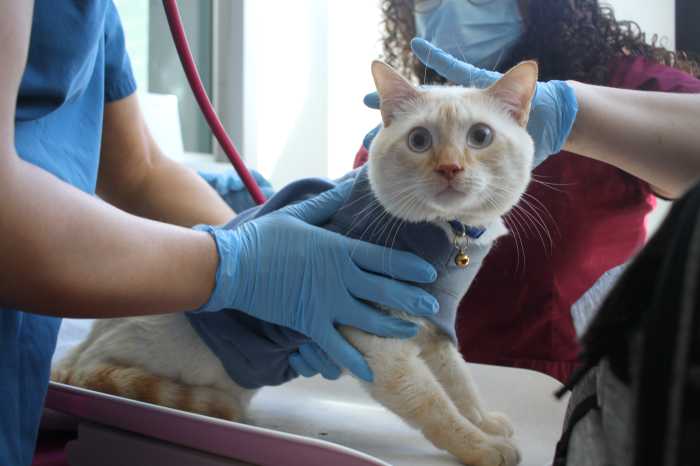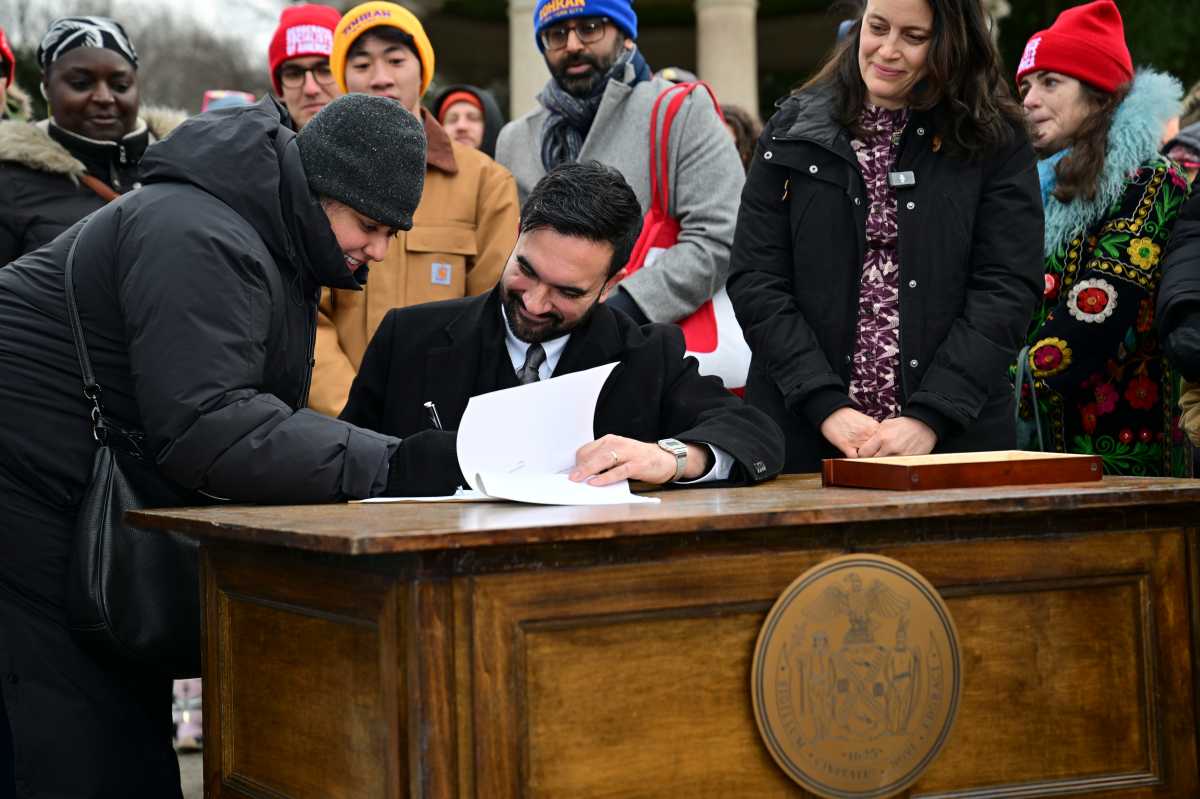It’s taking puppies off the menu.
A Kensington animal rescue is saving dogs destined for South Korean dinner tables by taking in pups rescued from foreign meat farms and finding safe homes for them in Brooklyn, according to its owner, who blasted the Asian country’s canine-cuisine business.
“It is a brutal industry,” said Sean Casey, who owns Sean Casey Animal Rescue at 153 E. Third St. “The meat industry in general can be pretty brutal, and when you add that it’s companion animals, they’re definitely in our hearts.”
The shelter welcomed six dogs from the Asian country on Friday and Saturday, the latest of about a dozen to arrive since it started rescuing them last month.
Thousands of South Korean slaughterhouses butcher the animals annually. In 2016, 240,000 pooches were killed according to a report in the Guardian, but some estimates put the number of deaths closer to 2 million each year.
Man’s best friend is served in a variety of dishes, including the popular Bosintang, a dog-meat soup that is said to enhance virility and cure other ailments, according to a South Korean native and founder of a Queens-based Korean-dog rescue.
The country’s meat farms are similar to American puppy mills and poultry plants, where animals are stuffed into cramped, dark cages and brood hounds birth litter after litter of pups destined for a brutal death, she said. The dogs are intentionally tortured before they are slaughtered in order for them to produce adrenaline, which is said to enhance their meat’s curative properties.
“It’s important to rescue these dogs because of the torture that’s involved in the process of slaughtering them,” said Gina Lori, owner of Korean K9 Rescue. “The people who consume dog meat and the butchers who kill the dogs believe that the more the dog suffers, and the more the dog is tortured, the higher the adrenaline level in the meat that’s produced.”
But not all South Koreans eat dog meat regularly, and there are many activist groups in the country dedicated to eliminating the industry and saving its victims.
Lori’s group works with those foreign rescue organizations, which recover dogs destined for meat farms, and foots the bill to fly them to the United States, where the pooches are placed with foster families until permanent homes are found.
Korean K9 Rescue’s foster network is limited, however, so its founder teamed up with Casey’s shelter, which has room to host about a dozen Asian hounds — in addition to many local mutts — until they can be adopted.
Slaughterhouses trade in breeds that include “everything from mastiffs to Pomeranians,” Lori said, although most of her group’s rescues are Jindos, a small, handsome, good-natured Korean variety that fit perfectly in most Brooklyn abodes.
“They’re not just great dogs, they’re great for New York City apartments,” said Lori. “They’re under 30 pounds, they’re sweet, and they make great companions.”
Anyone interested in adopting a rescued South Korean dog can visit Sean Casey Animal Rescue (153 E. Third St. near Fort Hamilton Parkway in Kensington, www.nyanimalrescue.org) for more information.
